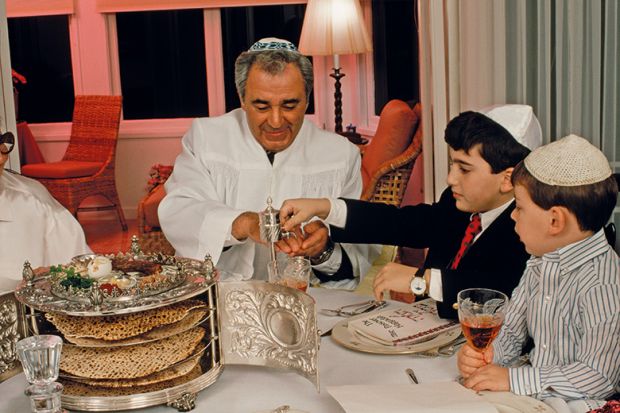This book, by a professor of political theory at Oxford, is not about religion itself. It is about the relationship between religion and the secular state. In days of yore, religion was identical with the state. There was no religion separate from the state. The clearest example is God’s choosing Abraham to be the founder of both the nation and the religion of Israel.
Christianity arose in the Roman Empire. It was a persecuted religion until the conversion of Emperor Constantine in 312 AD. As the emperor went, so went the Empire. True, Constantine issued an edict of toleration for practitioners of other religions. But toleration was not quite citizenship. Jews, who were eligible for citizenship from 212 AD on, were given an extraordinary exemption. Citizenship ended with the fall of Rome.
It was the French Revolutionary Assembly that granted French Jews outright citizenship for the first time since Roman days. France introduced the distinction between public life, from which religion was excluded, and private life. This distinction then spread to the rest of Western Europe during the 19th century. With minor exceptions it was present in the United States from the start.
Liberalism means that the state tolerates religions outside of Christianity. The classic expression of this is philosopher John Locke’s statement on tolerance, where the state determines public matters and leaves the individual to decide private ones. But, objects Laborde, who is to decide which matters are public and which private?
Even in states considered secular, she observes, there is no absolute divide between church and state. Some states are “constitutional theocracies”, where religion is part of the state. In others, religion is at the centre of membership in the state. Some states appeal to religion in making laws on seemingly private matters such as sexuality and family. No one notion of secular society encompasses Turkey, India, Indonesia, Poland and Israel. One cannot generalise from the clear-cut cases of France and the United States.
Laborde proposes four criteria for what she calls “minimal separation”, or the minimally acceptable separation of church and state. These criteria underlie liberalism. First, the state must justify laws by appeal to public, accessible reasons. Second, the state must justify what it demands of members by appeal not to sacred doctrines or personal revelation but to shared values. Third, the state must embrace all citizens and not just ones of a specific religion. Fourth, the state must be democratic, which means that disagreements among groups are to be settled by the state itself rather than by any group within it.
Laborde’s book, which is rigorously argued, would be more impressive if it took into account the trend in the field of religious studies to transcend the whole divide between the secular and the religious. For the sociologist Émile Durkheim, for example, any group that possesses an explicit membership, meets regularly and enables its members to experience one another qualifies as religious. Ultimately, the group is worshiping itself. The state is the religion.
Robert A. Segal is sixth-century chair in religious studies, University of Aberdeen, and the author of Myth: A Very Short Introduction (2015).
Liberalism’s Religion
By Cécile Laborde
Harvard University Press, 344pp, £27.95
ISBN 9780674976269
Published 29 September 2017
Register to continue
Why register?
- Registration is free and only takes a moment
- Once registered, you can read 3 articles a month
- Sign up for our newsletter
Subscribe
Or subscribe for unlimited access to:
- Unlimited access to news, views, insights & reviews
- Digital editions
- Digital access to THE’s university and college rankings analysis
Already registered or a current subscriber?




